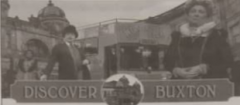2015华中师范大学第一附属中学高三期中考试英语试题及答案(3)
A. Ebola under control thanks to WHO’s caution
B. the decline of new Ebola cases though not defeated
C. celebrations on the downturn in Ebola in Liberia
D. More treatment and relief supplies to West Africa
52. Why did Dr Aylward urge people not to celebrate prematurely?
A. Because celebrations may increases infections.
B. Because the pattern of the disease is up and down.
C. Because people may be misled to cease the battle.
D. Because we are getting an upper hand on the virus.
53. Which of the following didn’t contribute to the improvement in Liberia?
A. better contact tracing B. more treatment facilities
C. safer burial practices D. data updated with old cases
54. According to the text, “burning quite hot” means ______ .
A. very severe B. extremely hot C. on fire D. well received
B
It was a bitter cold evening in northern Virginia many years ago. The old man’s beard was glazed by winter’s frost while he waited for a ride across the river. The wait seemed endless. His body became numb and stiff from the frigid north wind.
It was long before he heard the faint, steady rhythm of hooves (马蹄) along the frozen path. Anxiously watching several horsemen coming up, he let the first one pass by without any effort to get his attention, then another passed by, and another. Finally, the last rider drew near where the old man sat like a snow statue when old man caught his eyes and said, “Sir, would you mind giving an old man a ride to the other side?”
Stopping his horse, the rider replied, “Sure! Jump aboard.” Seeing the old man unable to lift his half-frozen body from the ground, the horseman got down to help him. The horseman took him not just across the river, but to his destination just a few miles away.
As they approached the tiny but cozy cottage, the horseman’s curiosity caused him to inquire, “Sir, I noticed you let several other riders pass by without making an effort to secure a ride. Then I came up and you immediately asked me for a ride. I am curious why, on such a bitter night, you would wait and ask the last rider. What if I had refused and left you here?”
The old man looked the rider straight in the eyes and replied, “I reckon I know people pretty good. I looked into the eyes of the other riders and immediately found no concern for my situation. It would have been useless even to ask them for a ride. But when I looked into your eyes, your gentle spirit would welcome the opportunity to give me assistance in my time of need.”
Those heart-warming comments touched the horseman deeply. “I’m so grateful for what you have said,” he told the old man. “May I never get too busy in my own affairs that I fail to respond to the needs of others with kindness and compassion.”
With that, Thomas Jefferson turned his horse around and made his way back to the White House.
55. Why didn’t the old man ask the previous riders for a ride?
A. Because he was waiting for the last rider.
B. Because his efforts failed to get their attention.
C. Because he assumed they had no concern for him.
D. Because he was too numb to lift his half-frozen body.
56. What caused the last rider to stop and help the old man?
A. the old man’s poor situation B. The old man’s warm comments
C. his own affairs D. kindness and sympathy
57. What do you know about the old man?
A. He judged people by looking into their eyes.
B. He lived in a cozy cottage a few miles away.
C. He gave the last rider an opportunity to help.
D. He recognized the president at first sight.
58. Which can be the best title of this text?
A. look into your eyes B. compassion of a great man
C. the last rider to help D. return to the White House
C
It is said that a great many things about languages are mysterious, and many will always be so. But some things we do know.
Firstly, we know that all human beings have a language of some kind. There is no race of men anywhere on earth so backward that it has no language, no set of speech sounds by which the people communicate with one another. In historical times, there has never been a race of men without a language.
Secondly, there is no such thing as a primitive language. There are many people whose cultures are underdeveloped, who are, as we say, uncivilized, but the languages they speak are not primitive. In all known languages we can see complexities that must have been tens of thousands of years in developing.
This has not always been well understood; indeed, the direct contrary has often been stated. Popular ideas of the language of the American Indians will illustrate. Many people have guessed that the Indians communicated in a very primitive system of noises. Study has proved this to be nonsense. There are, or were, hundreds of American Indian languages, and all of them turn out to be very complicated and very old. They are certainly different from the languages that most of us are familiar with, but they are no more primitive than English and Greek.
A third thing we know about language is that all languages are perfectly adequate. This means each one is a perfect means of expressing the culture of the people who speak the language.
Finally, we know that language changes. It’s natural and normal for language to change; the only languages which do not change are the dead ones. This is easy to understand if we look backward in time. Change goes on in all aspects of language. Grammatical features change as do speech sounds and changes in vocabulary are sometimes very extensive and may occur very rapidly. Vocabulary is the least stable part of any language.
59. In the 2nd paragraph the author thinks that________.





